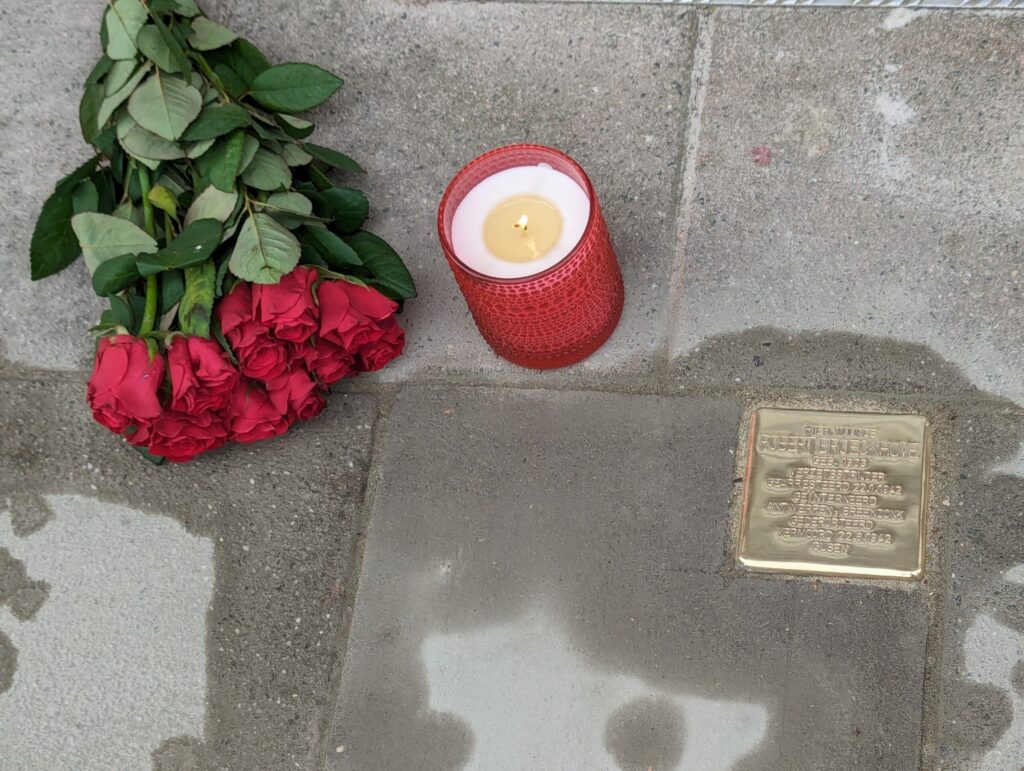Seven new brass paving stones in memory of Holocaust victims during the Second World War were inaugurated in Antwerp on Wednesday 28 August.
The latest stones were placed in the name of members of two Jewish families who were deported by the Nazis, with only one of them having survived.
The memorial cobblestones, also known as Stolpersteine or stumbling stones, can be found all over Europe. Placed on the pavement, they pay tribute to the victims of the Holocaust by marking the houses where they lived before being deported to Nazi death camps.
The Berlin-based artist, Gunter Demnig, has been placing these plaques in major European cities since 1995. Over 100,000 such memorials have been installed, with nearly 170 in Belgium alone.
The newly unveiled plaques in Antwerp honour the Vos-Nabarro and Zwaaf-Vos families, originally from Borgerhout and Berchem respectively. Marcus Zwaaf and Sara Vos were abducted by the Nazis on the night of 28-29 August 1942, deported, and subsequently killed at Birkenau concentration camp.
Emiel Vos, Rebecca Navarro and their three children Andries (aged 6), Isaac (5), and Herman (3) were taken the same night to Dossin barracks in Mechelen, before their deportation to Auschwitz-Birkenau. Rebecca and her three children were killed. Emiel survived, later remarrying Léa Zwaaf, his cousin and the daughter of Marcus Zwaaf.

